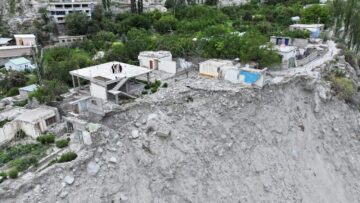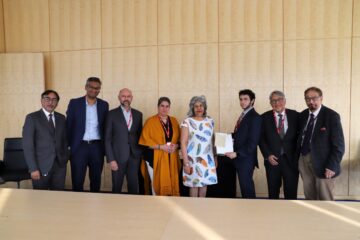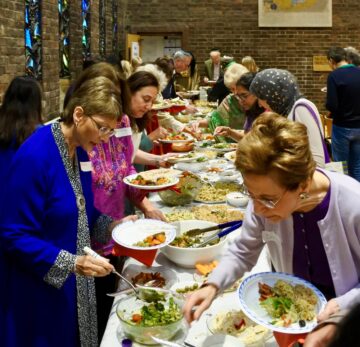The Summer Programme aims to introduce participants to Islam from a social, cultural and civilisational perspective, and to provide an understanding of the Shia Ismaili Tariqah within the larger context of the intellectual and historical development of Islam. It also provides a forum to raise questions, stimulate reflection and encourage discussion on important issues of contemporary relevance to Muslims. Particular attention was given throughout the Programme to introduce participants to primary and secondary sources as well as intellectual perspectives on aspects that often receive relatively little scholarly attention.
Despite the intensive nature of the Programme, the participants were able to take some time out to enjoy punting on the River Cam. Towards the end of their nine-day course, a formal dinner was organised during which Professor Karen Armstrong addressed the audience on some of the issues facing religions in contemporary society. She emphasised that all faiths are founded on altruistic principles and that historically it has been during periods of conflict that religions have been more deeply examined and served as a source of meaning. She called for the political discourse around religion to move away from issues of violence and aggression and to return to the true teachings of religion, such as compassion and peace.
Christopher Schweitzer, a participant from the United States, was elected to speak on behalf of all the participants about their experiences during the Programme. He described how much they had learned in such a short space of time, but noted that, perhaps more importantly, they had discovered “that it is no small challenge to examine history, especially religious history, with scholastic rigour and a view towards honouring those who have preceded us with intellectual honesty.” He went on to refer to the IIS as “an institution dedicated to the study of higher truths” and said that the group had been inspired to use what they had learned in the service of humanity.






